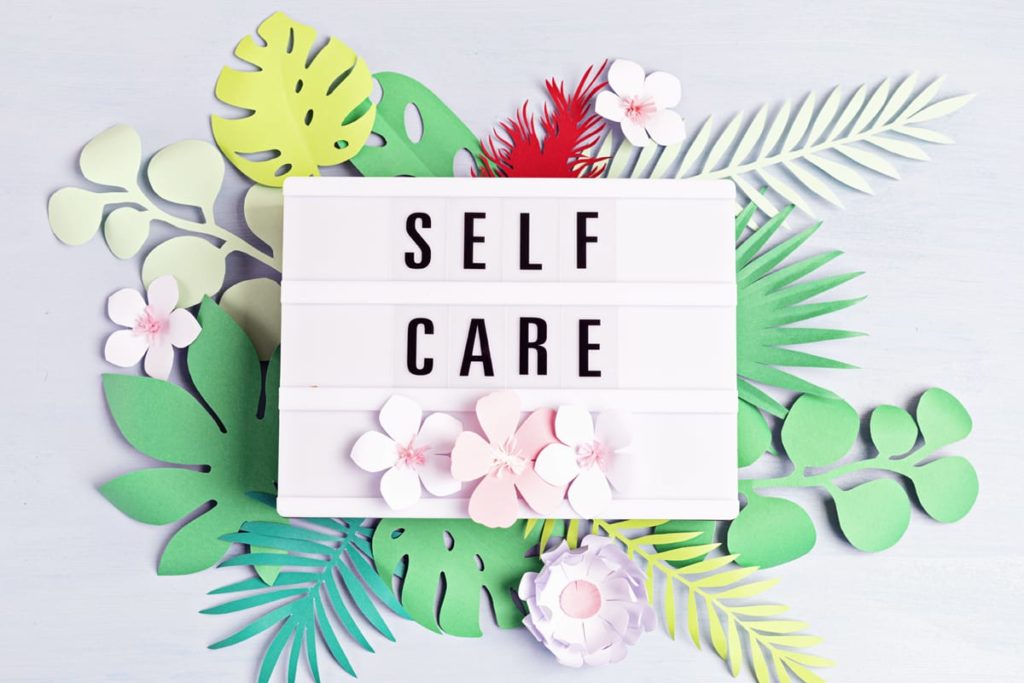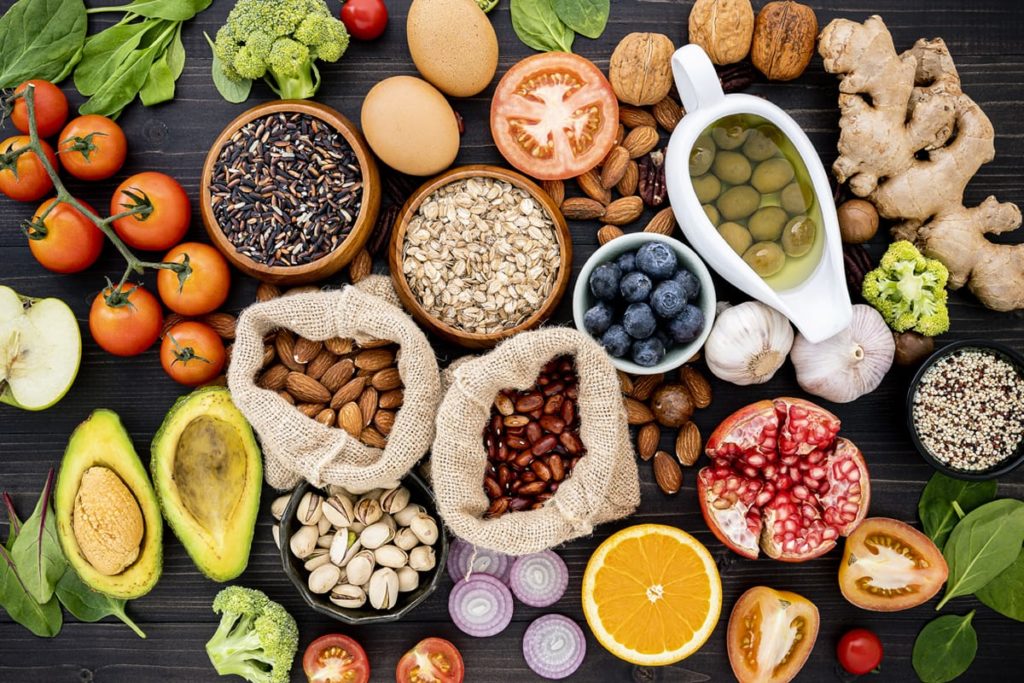 Worried about your health and your loved ones? Feeling lonely? Anxious about your job, the economy, the future, politics ?
Worried about your health and your loved ones? Feeling lonely? Anxious about your job, the economy, the future, politics ?
The COVID-19 Pandemic has been unprecedented time of uncertainty that has led to a global mental health crisis. According to the Census Bureau, more than one third of Americans have displayed signs of clinical depression, anxiety or both since the pandemic started. The economy is a significant source of stress for seventy percent of Americans. Studies have shown that deteriorating mental health impacts immunity. How can you attend to self-care and use Ayurvedic guidelines to manage mental health at this time?
Ayurvedic approach to mental health
Ayurveda is a holistic science that acknowledges the mind-body correlation. Its definition of health as Swasthya (being centered in the self) includes equilibrium of:
- Doshas (energy principals)
- Digestive and metabolic fire
- Tissues
- Excretions
- A blissful state of spirit, sense organs and mind
Ayurvedic methods of mental health (Manas Shastra) management focus on prevention, gentle intervention and do not stigmatize mental health.
We all go through cycles of feeling lethargic, productive and restless, light, alert and blissful. Ayurveda enumerates three attributes of the mind to summarize these qualities: Tamas (heaviness), Rajas (activity and restlessness) and Sattva (pure, clear, happy quality of the mind). We need Tamas to rest and Rajas to act, but when they go out of balance, psychological issues like depression, loss of focus and extreme aggression result. Sattva endows us with good mental health, happiness, wisdom and the ability to do our 100%. To enhance mental health, you can follow practices to improve Sattva.
Similarly, you need to attend to the Doshas, or fundamental energy principals. The Doshas known as Vata, Pitta and Kapha combine to form your unique Ayurvedic constitution, and when they are balanced, the mind is pleasant and tranquil. We tend to be dominant on one or two Doshas. Vata personality people tend to be creative and imaginative; Pitta, intellectual and motivated and Kapha, nurturing and loving. An imbalance in the Doshas impacts the mind; Vata imbalance leads to restlessness, fear and anxiety, Pitta manifests as anger and irritability and Kapha as lethargy and depression. The converse is true; when the mind is in a state of imbalance, the Doshas can go out of balance like a sudden shock that leads to Vata imbalance.
If you consult with an Ayurvedic practitioner, every intake assesses mental wellbeing. The consultation delves into physical, physiological, psychological and genetic history. Overall Dosha imbalances are corrected through palliative measures like herbs and modifications in lifestyle and nutrition; as well as cleansing with therapies like Abhyanga (self massage) and Shirodhara (pouring warm medicated oil on the forehead) or Panchakarma (a detailed and powerful, therapeutic detoxification). Spiritual therapies like prayer, mantras and chanting based on your belief system, psycho-behavior therapy and mental hygiene practices are advised. Ayurveda relies heavily on Yoga, Meditation, Pranayama and Marma to enhance mental health. These are well researched techniques; a Harvard Study demonstrated that just 8 weeks of meditation can change the grey matter of the brain and another recommended Yoga for COVID-19 anxiety!
Mental health is boosted by strengthening immunity which is correlated with Ojas or vitality (and vice versa). Ojas is the essence of all the bodily tissues and the ultimate resort of both our nutrition and our genetic inborn strength. Depleted Ojas impacts mental health and psychological factors like grief or anxiety could trigger a depletion in Ojas and immune resistance.
Ten Ayurvedic tips for enhancing mental health
1. Increase Sattva and Practice Self Care
At the onset of the pandemic, Vaidya. Karthik Krishnan, Senior Medical Officer at Kerala Ayurveda Ltd, India recommended ways to improve Sattva and asserted that the fastest route to do so is Yoga or stretching, Pranayama and meditation.
- Yoga: Find an experienced yoga practitioner online or try some stretches based on your physical ability and personal preference.
- Breathwork: Nadishodhan (alternate nostril breathing) and deep breathing or abdominal breathing) are calming and grounding.
- Meditation: Try a guided meditation, spend a few minutes internalizing with eyes closed or learn a practice of meditation
- Follow a routine, getting enough exercise and having a healthy, fresh nutritious diet.
- Practice self care by reading, journing, taking online courses to enhance skills, stay creative and engaged, be kind to yourself and take a break when necessary.
2. Balance Agni and Doshas
To bring both mind and body in balance and enhance a sense of contentment and wellbeing.
Vaidya. Jayarajan Kodikannath, Chief Ayurvedic Consultant at Kerala Ayurveda advises to:
- Follow personal and seasonal balancing of Doshas
- ‘Take a deep breath’ – internalizing and balance are key in navigating this time.
- Get enough sleep and exercise and sticking to a routine.
- Eat well, planning ahead to prevent succumbing to food cravings (with healthy snacks like nuts, seeds and raisins instead of candy) and taking breaks.
Knowledge of one’s Prakriti, Vikrati, Ayurvedic guidelines for good health that include the three pillars of health, Nutrition (Aahar), Sleep (Nidra) and balanced Lifestyle (Vihar) and following Dinacharya (daily regimen) and Ritucharya (seasonal regimen) guidelines help in Ayurvedic management of mental health. Seek an Ayurvedic consultation to find out more.
3. Try a cleanse!
When the Agni or digestive and metabolic fire is hampered, Ama or toxins build up and are a cause of all physical and mental ailments. These toxins can be endogenous, environmental and psychological and you have to be careful about toxic news, relationships and psychological inputs. Cleansing lends clarity, helps get rid of Ama, restores health and wellbeing and prevents future recurrence of diseases.

4. Have a nourishing diet
Nutritional psychology and psychiatry are buzzwords now but the food mood connection has always been acknowledged by Ayurveda.
We recommend warm, easy to digest fresh food and using seasonally appropriate spices and herbs like turmeric, cumin, black pepper, ginger, Tulsi, cardamom and coriander.
Favor plenty of fruits and vegetables, whole grains, good fats and try to incorporate the six tastes or Shadrasa in your diet. Avoid processed, cold and raw foods as much as possible. Make sure to hydrate enough in-between meals.
Nutritional psychology and psychiatry are buzzwords now but the food mood connection has always been acknowledged by Ayurveda.
We recommend warm, easy to digest fresh food and using seasonally appropriate spices and herbs like turmeric, cumin, black pepper, ginger, Tulsi, cardamom and coriander.
Favor plenty of fruits and vegetables, whole grains, good fats and try to incorporate the six tastes or Shadrasa in your diet. Avoid processed, cold and raw foods as much as possible. Make sure to hydrate enough in-between meals.
5. Get adequate sleep
Studies have shown that inadequate sleep can impair cognition, focus, increase sadness and anxiety and impact immunity; the Dinacharya practices of Ayurveda that promote sleep are corroborated by the science of circadian rhythms. Guidelines to follow include:
- It’s best to sleep before 10pm Kapha time (unless you have an imbalance);
- Take a media break a few hours before sleeping
- Eat 2-3 hours before hitting the bed
- Have a soothing nighttime ritual (you could apply oil under your feet, but make sure to wear socks to avoid slipping if you get up!).
- Get adequate sleep; the dinacharya practises of Ayurveda are corroborated by the science of circadian rhythms. Try to avoid day time sleep which increases Kapha or lethargy.
Studies have shown that inadequate sleep can impair cognition, focus, increase sadness and anxiety and impact immunity; the Dinacharya practices of Ayurveda that promote sleep are corroborated by the science of circadian rhythms. Guidelines to follow include:
- It’s best to sleep before 10pm Kapha time (unless you have an imbalance);
- Take a media break a few hours before sleeping
- Eat 2-3 hours before hitting the bed
- Have a soothing nighttime ritual (you could apply oil under your feet, but make sure to wear socks to avoid slipping if you get up!).
- Get adequate sleep; the dinacharya practises of Ayurveda are corroborated by the science of circadian rhythms. Try to avoid day time sleep which increases Kapha or lethargy.
6. Maintain a balanced lifestyle
These are basic but so effective when practiced for mind and body harmony. Eat at regular mealtimes and ensure that staying or working from home doesn’t disrupt your routines. Make time to follow your hygiene practices – they help you stay healthy and “feel right.” Get some exercise each day and spend time in nature which is grounding and relaxing.
These are basic but so effective when practiced for mind and body harmony. Eat at regular mealtimes and ensure that staying or working from home doesn’t disrupt your routines. Make time to follow your hygiene practices – they help you stay healthy and “feel right.” Get some exercise each day and spend time in nature which is grounding and relaxing.
7. Stay distanced – but socially connected
Ayurveda pays attention to one’s connection with family and community, and studies have shown nurturing relationships improves longevity and mental health.
If you need more connection, try Seva or volunteering online which has many physical and mental health benefits like reducing hypertension and depression, besides providing a social connection and intellectual stimulation. Your spiritual life is also a great source of support and always with you.

Ayurveda pays attention to one’s connection with family and community, and studies have shown nurturing relationships improves longevity and mental health.
If you need more connection, try Seva or volunteering online which has many physical and mental health benefits like reducing hypertension and depression, besides providing a social connection and intellectual stimulation. Your spiritual life is also a great source of support and always with you.

8. Avoid overstimulation of senses
Schedule breaks during your work or school day to breathe, rest your eyes, internalize or go for a nature walk. Media breaks minimize digital overload and also help you to be more mindful.
We perceive the world through our sensory organs and taking care of them is part of a healthy Dinacharya that protects our mental health. Soothe the sense organs/senses in the following ways:
- Eyes/Visual – Akshi Tarpana, Color Therapy, periodically resting the eyes and doing eye exercises
- Nose/Smell/Respiration – Nasya, Net Pot, steam inhalation and Aromatherapy with essential oils
- Skin/Tactile – Abhyanga, Shirodhara and Marma. These practices go much beyond soothing the tactile sense and are employed in many therapeutic ways.
- Ears/Hearing – Karna Poorna (medicated oil in the ears), Chanting and Soothing music
- Tongue/Taste – Tongue cleaning, having nourishing food at regular meal times, herbal teas, avoiding overeating
Schedule breaks during your work or school day to breathe, rest your eyes, internalize or go for a nature walk. Media breaks minimize digital overload and also help you to be more mindful.
We perceive the world through our sensory organs and taking care of them is part of a healthy Dinacharya that protects our mental health. Soothe the sense organs/senses in the following ways:
- Eyes/Visual – Akshi Tarpana, Color Therapy, periodically resting the eyes and doing eye exercises
- Nose/Smell/Respiration – Nasya, Net Pot, steam inhalation and Aromatherapy with essential oils
- Skin/Tactile – Abhyanga, Shirodhara and Marma. These practices go much beyond soothing the tactile sense and are employed in many therapeutic ways.
- Ears/Hearing – Karna Poorna (medicated oil in the ears), Chanting and Soothing music
- Tongue/Taste – Tongue cleaning, having nourishing food at regular meal times, herbal teas, avoiding overeating
9. Attend to immunity and Ojas
Systemic prophylaxis or prevention focuses on overall health. Rasayana. rejuvenating therapies are a specialty of Ayurveda to boost immunity and involve immunomodulatory herbs and a nourishing diet with dairy, ghee and honey, practices like silence, internalization, self-care and Achara Rasayana.
Local prophylaxis or prevention measures include:
- Pratimarsa Nasya (application of one or two drops of oil like sesame oil in the nostrils)
- Steam inhalation
- Gargling with a herbal decoction,
- Having hot food
- Drinking warm water and herbal teas
You can also try herbs and formulations that boost immunity. Rasayana herbs, specifically Medhya Rasayanas or brain tonics are immunomodulatory, rejuvenating herbs and adaptogens that help with mental health and boost immunity. These include Guduchi or Amruth, Brahmi, Yashtimadhu, Amalaki, Ashwagandha, Holy Basil, Guggulu, Brahmi Ghrita, Kalyanaka Ghrita, Chyawanprash and Manasamitra Vatakam. Many of the herbs in clinical trials for COVID-19 work simultaneously on mental health and immunity.
If you prefer to take your herbs in the form of tea, here’s a recipe for the herbal tea Ayush Kwath, the immune boosting tea suggested by the Indian Ministry of Ayush (which governs traditional Medicines).
Systemic prophylaxis or prevention focuses on overall health. Rasayana. rejuvenating therapies are a specialty of Ayurveda to boost immunity and involve immunomodulatory herbs and a nourishing diet with dairy, ghee and honey, practices like silence, internalization, self-care and Achara Rasayana.
Local prophylaxis or prevention measures include:
- Pratimarsa Nasya (application of one or two drops of oil like sesame oil in the nostrils)
- Steam inhalation
- Gargling with a herbal decoction,
- Having hot food
- Drinking warm water and herbal teas
You can also try herbs and formulations that boost immunity. Rasayana herbs, specifically Medhya Rasayanas or brain tonics are immunomodulatory, rejuvenating herbs and adaptogens that help with mental health and boost immunity. These include Guduchi or Amruth, Brahmi, Yashtimadhu, Amalaki, Ashwagandha, Holy Basil, Guggulu, Brahmi Ghrita, Kalyanaka Ghrita, Chyawanprash and Manasamitra Vatakam. Many of the herbs in clinical trials for COVID-19 work simultaneously on mental health and immunity.
If you prefer to take your herbs in the form of tea, here’s a recipe for the herbal tea Ayush Kwath, the immune boosting tea suggested by the Indian Ministry of Ayush (which governs traditional Medicines).
10. Try a self-massage!
Try a self massage or therapies like Nasya, Abhyanga and Shirodhara (at an Ayurvedic facility if you’re comfortable, if it is available and allowed in your county). Some therapies include:
- Nasya – Nasya involves application of warm medicated oils or herbal remedies in the nostrils in a therapeutic manner and studies have shown it has a calming effect on the mind, improves clarity and enhances memory. You could start a Pratimarsha or daily Nasya with 1-2 drops of Anu Taila, Sesame oil or ghee.
- Shirodhara or continuous pouring of warm, medicated oil on the forehead is traditionally used for anxiety, insomnia and PTSD.
- Abhyanga – therapeutic massages with regular oils like sesame or coconut oils or medicated oils.
Other individualized therapies like Shirolepa, Takradhara and Shirobasti as prescribed by the Ayurvedic practitioner.
Special Circumstances:
For caregivers, patients that are self-quarantined, people with comorbidities who may be anxious, or those who have a sick family member far away or someone close who may have passed away this could be a very hard time. Self-care is of paramount importance; make sure to nourish yourself and stay connected, increase Sattva, rejuvenate Ojas and attend to Vata Dosha with warmth and grounding. Especially if there is a death in the family, Ayurveda does believe in the journey of the soul towards evolution and peace; we are sorry for your loss. Do bless those that have passed and honor their contribution in your life.
Try a self massage or therapies like Nasya, Abhyanga and Shirodhara (at an Ayurvedic facility if you’re comfortable, if it is available and allowed in your county). Some therapies include:
- Nasya – Nasya involves application of warm medicated oils or herbal remedies in the nostrils in a therapeutic manner and studies have shown it has a calming effect on the mind, improves clarity and enhances memory. You could start a Pratimarsha or daily Nasya with 1-2 drops of Anu Taila, Sesame oil or ghee.
- Shirodhara or continuous pouring of warm, medicated oil on the forehead is traditionally used for anxiety, insomnia and PTSD.
- Abhyanga – therapeutic massages with regular oils like sesame or coconut oils or medicated oils.
Other individualized therapies like Shirolepa, Takradhara and Shirobasti as prescribed by the Ayurvedic practitioner.
Special Circumstances:
For caregivers, patients that are self-quarantined, people with comorbidities who may be anxious, or those who have a sick family member far away or someone close who may have passed away this could be a very hard time. Self-care is of paramount importance; make sure to nourish yourself and stay connected, increase Sattva, rejuvenate Ojas and attend to Vata Dosha with warmth and grounding. Especially if there is a death in the family, Ayurveda does believe in the journey of the soul towards evolution and peace; we are sorry for your loss. Do bless those that have passed and honor their contribution in your life.
- Get link
- X
- Other Apps
- Get link
- X
- Other Apps

Comments
Post a Comment